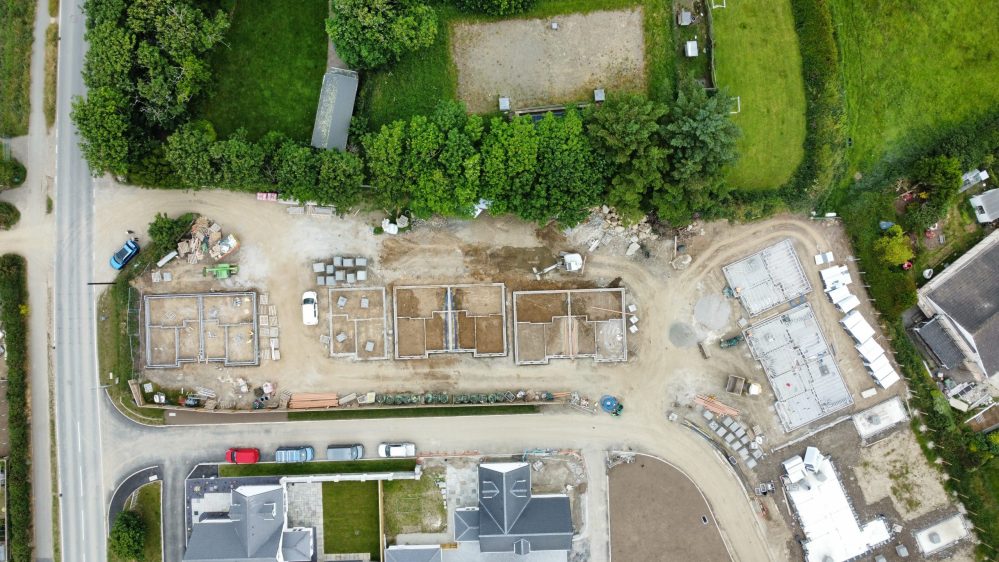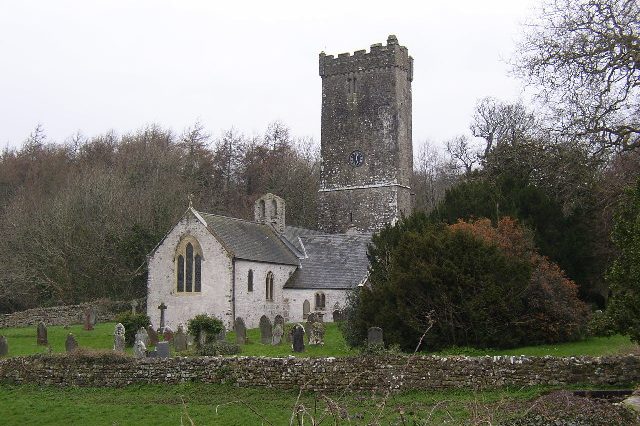Politics
Significant concerns for EU citizens in Wales

THE UK Government’s EU Settlement Scheme (EUSS) is causing significant problems for EU citizens currently living and working in Wales.
LOW REGISTRATION IN WALES
Wales has the lowest rates of registration in the UK.
Only 41% of those eligible to apply for EUSS to stay in Wales after Brexit have done so.
The rhetoric surrounding EU migration since the referendum has taken its toll on people’s emotional wellbeing, meaning they no longer feel welcome to live here.
The UK Government has proposed a £30,000 salary threshold for EU residents to qualify for a work visa after Brexit. This could damage the Welsh economy and leave Wales short of key health professionals, say Welsh employers.
The National Assembly for Wales’ External Affairs and Additional Legislation Committee, which focuses on the implications of Brexit for Wales, is today publishing a report looking at the impact of changes to ‘freedom of movement’ after Brexit. As well as the impact on services and employers, the Committee has looked at the effect on individual EU citizens currently living and working in Wales – there are currently an estimated 80,000.
The Committee heard evidence from a range of health professionals, employers and individuals who would be affected by the proposals to change the immigration system after Brexit.
Organisations representing employers and key workers including the Welsh NHS Confederation, the Royal College of Nursing Wales, Airbus, Universities Wales, Wales TUC and the Arts Council for Wales have voiced serious concerns to the Committee. The UK Government’s proposals for EU citizens after Brexit cause concern to health services and businesses. Under the UK Government’s proposals almost two-thirds of EU workers currently in Wales would not be eligible under the proposed system with the £30,000 salary threshold, and the threshold would lead to a 57% reduction in EU immigration to Wales over 10 years.
EU SETTLEMENT SCHEME – DIGITAL BY DEFAULT
As part of the Committee’s inquiry, it heard evidence from people directly affected by the changes to freedom of movement after Brexit.
The EU Settlement Scheme (EUSS) was established by the UK Government because, in most cases, EU citizens living in the UK will no longer have a legal right to reside in the UK once it leaves the EU and free movement ends.
EU citizens living in the UK must register for the EUSS.
The Committee heard many concerns about the system to register. The UK Government has adopted a ‘digital by default’ approach and there have been issues with the technology. The current system only allows the use of Android phones or tablets, not iPhones.
£30,000 THRESHOLD – TOO HIGH FOR WALES
The Welsh NHS Confederation, the membership body representing all NHS organisations in Wales, told the Committee that the proposals to include EU citizens in its £30,000 salary threshold for a visa would “exacerbate current staffing shortages”. It highlighted that 53% of EU NHS staff currently earn below that.
The Bevan Foundation highlighted that the average salary in Wales for full-time workers is £26,000, significantly below the proposed threshold. Airbus, a large employer in Wales, added that the threshold is “too high for key sectors” which could have implications for many services and industries. They argued that the proposals from the UK Government could “leave gaps in the requirements of Wales which can’t be filled in the short term.”
The Committee believes that a salary threshold set at this level will not meet the needs and requirements of the Welsh economy. It is calling on the UK Government to lower the salary threshold requirements and is recommending that the Welsh Government uses all the means at its disposal to ensure that the currently proposed salary threshold is reduced.
FEELING UNWELCOME
The Committee heard evidence from people affected directly and how many people felt that they were no longer welcome in the UK following the EU referendum.
Some argued that the policy pursued by the UK Government since the referendum has exacerbated this.
Several people said that some of the rhetoric relating to the issue of EU migration had hardened and described the toll that this had had on their emotional wellbeing, and that of friends and family members.
One participant emphasised that it is not simply an administrative process, but that real people are involved and that it was important to remember how the process affects them.
Michal Poreba from Swansea, an EU citizen originally from Poland, who gave evidence to the Committee’s inquiry, said: “The EU settlement scheme and the UK Government’s immigration proposals after Brexit are not simply about administrative processes, they are about people’s lives. Real people are involved and it is important to consider how the process affects them and their families. Yet the debate appears to be all about the practicalities of the implementation.
“Questions are asked why so few people have registered so far and how to increase the uptake. But what does it offer? Why would anybody apply? The facts are that the scheme significantly reduces the rights of the applicants. Going through the process, while technically quite easy and straightforward, feels debilitating and comes with no legal guarantees. It feels like an act of political self-harm. No wonder there are no queues to do it.
“The message repeated by politicians appears to be the same – You will be allowed to stay. We want you to stay. Of course, economically speaking they need us to stay, at least for the short term. But there is a big difference between being allowed to stay, and being welcomed. There is a big difference between a legal right and permission.”
SHORTAGE OCCUPATION LIST
Wales has specific needs. The Shortage Occupation List is an official list of occupations for which there are not enough resident workers (including EU nationals) to fill vacancies. The UK list is supplemented by a separate list for Scotland.
The majority of those who gave evidence to the Committee supported the creation of a Wales-specific Shortage Occupation List to meet the specific needs of Wales. The Committee is calling on the UK Government to establish this, which the Welsh Government would be able to amend according to Welsh needs.
David Rees AM, Chair of the External Affairs and Additional Legislation Committee said: “We have significant concerns about the implications of Brexit on our workforce in Wales. The ending of freedom of movement will have consequences for business and our economy if we lose vital workers. What’s more worrying is the impact that the loss of EU citizens could have on our NHS. We rely on EU citizens who work as nurses and carers.
“We heard some very concerning and emotional evidence from EU citizens and their families living and working in Wales. We must not forget the human impact that the ending of freedom of movement will have.
“We are calling on the Welsh Government to do all it can to get the UK Government to reduce its proposed salary threshold of £30,000 in order to better reflect average earnings here in Wales. Under these proposals, almost two-thirds of EU workers currently in Wales would not be eligible to live here. This could mean that we would not be able to recruit key workers such as nurses and carers from abroad.
“The EU Settlement Scheme for those who already live and work in Wales is full of problems, with an online-only application process and limited access on smartphones, these problems must be addressed urgently.
“Wales’ economy has specific needs and changing demographics within Wales, including an ageing population, are likely to pose new challenges in the future. These challenges within the economy of Wales are likely to be exacerbated by an overly restrictive immigration regime after Brexit.
“Today we’re calling on the Welsh Government to show real leadership and send out a strong message that EU citizens are welcome, valued, and needed in Wales and we’re calling on the UK Government to rethink its proposals and take into account the needs of the Welsh economy and public services.”
News
Community asked for views on allocation of new St Davids homes

THE FIRST phase of Pembrokeshire County Council’s Glasfryn housing development in St Davids is progressing well with the second phase also underway.
The development being built by GRD Homes Ltd, began in November 2023, with a first phase completion date of Winter 2024 looking hopeful, ahead of the scheduled plans.
The first phase consists of seven properties, including a mixture of one and two bedroom bungalows
As completion draws closer the properties will be advertised via Pembrokeshire Choice Homes.
Ahead of this, the Council’s housing team will be holding community engagement on the 13th August 2024 at the Ty’r Pererin Centres, Quickwell Hill, St Davids, SA62 6PD, 5pm-7pm.
This will be a chance for officers to liaise with the local community about the allocation process for these properties.
Glasfryn’s second phase is well underway, with the initial groundwork already completed. This phase includes a further 11 two bedroom bungalows, with a completion date in late 2025.
These bungalows will meet the latest Welsh Government’s Development Quality Requirement, and will be energy efficient, built to EPC A specification and include solar panels to help tenants with running costs.
The Glasfryn development is funded in partnership with Welsh Government.
Cabinet Member for Housing Cllr Michelle Bateman said: “We are really keen to work with the community on a local lettings policy for these new properties, as we have done for our developments in other parts of the County.”
If you have any queries please email the Customer Liaison Team on [email protected], phone them on 01437 764551, or visit Housing’s Facebook page.
Business
Legal call to stop £6m expansion of holiday park still ongoing

A LEGAL request to overturn a Pembrokeshire County Council-granted approval for a £6m expansion of a south Pembrokeshire holiday park is still ongoing despite a previous announcement it had been turned down, county planners heard.
Back in February, Pembrokeshire planners were informed a legal challenge to a November 2023-granted application for works at Heritage Park, Pleasant Valley/Stepaside had been launched.
The holiday park scheme had previously been backed twice by county planners after a ‘minded to approve’ cooling-off period was invoked as it was against repeated officer recommendations to refuse.
The controversial scheme by Heritage Leisure Development (Wales) Ltd includes the installation of 48 bases for holiday lodges, a spa facility at a former pub, holiday apartments, a café and cycle hire, equestrian stables, a manège and associated office, and associated works.
It is said the scheme, next to the historic remains of the 19th century Stepaside ironworks and colliery, will create 44 jobs.
Officer grounds for refusal, based on the Local Development Plan, included the site being outside a settlement area.
Along with 245 objections to the current scheme, Stepaside & Pleasant Valley Residents’ Group (SPVRG Ltd) – formed to object to an earlier 2019 application which was later withdrawn – also raised a 38-page objection, with a long list of concerns.
A failed legal challenge to try and overturn a council decision to approve three separate planning applications at Heritage Park was launched in 2021 by SPVRG Ltd, which failed in early 2022; the council awarded costs of £10,000 despite external legal fees paid totalled £34,000 plus VAT.
At the June meeting of Pembrokeshire County Council’s planning committee members were told the recent judicial review call by SPVRG Ltd had been refused by the high court, the grounds put forward “not considered to be reasonably arguable”.
Committee chair Cllr Simon Hancock said a council request for SPVRG Ltd to pay costs incurred by the county council in defending the claim had now been submitted.
Following that, at the July planning meeting, in his chair’s announcement, Dr Hancock gave a clarification on the position.
“I can advise that whilst the application for judicial review was refused by the High Court Judge on May 31, 2024, the appellants have challenged this decision.
“This matter is listed for a renewal hearing, and accordingly the legal challenge is still in progress; I’m hoping that’s a clarification from the announcements I made back in June.”
Responding to the clarification, Trish Cormack of SPVRG Ltd pointed out it was not “an appeal,” adding: “Firstly, we are ‘requesting the decision to be reconsidered at a hearing,’ which is a bit less dramatic than ‘challenging the decision’.
“Secondly, the claim remains open for seven days after the decision on the papers in expectance of you requesting the hearing, and the form 86B comes attached to the decision with the case number already filled in for you. This is just part of the process for a judicial review. If the Judge really thought there were no merits to the case, he was free to issue a ‘without merits refusal’.
“That would have ended the claim there and then. The only way to resurrect it would have been to take it to the appeal court. But he didn’t.
“Thirdly, the announcement makes it sound like our ‘challenge’ had happened after their previous announcement, whereas in fact we only had seven days from May 31 in which to make the request, so they knew the moment we did (June 7) because we had to simultaneously email it to the court, PCC and the developer’s agent. So, they knew full well that there would be a renewal hearing.”
Farming
Farm building scheme near Lawrenny given go-ahead by planners

AN APPLICATION for a storage building at a south Pembrokeshire farm, made by a family member of an officer on Pembrokeshire County Council’s planning service, has been given the go-ahead by the authority’s planning committee.
In an application recommended for approval at the July 23 meeting of the authority’s planning committee, Laura Elliot sought permission for the erection of an agricultural storage building at Tedion Farm, a dairy farm near Lawrenny.
The application had been brought to committee, rather than being delegated to planning officers, due to the family connection.
The farm, near to the Pembrokeshire coast National Park border, comprises 270 milking cows and dairy heifer replacements kept on the farm comprising land over 138 hectares. The farm is mainly down to grass and the cows are paddock grazed in order to utilise grass efficiency.
No objections had been received from local community council Martletwy.
A report for members said: “The application seeks consent for the erection of agricultural storage building. The erection of an agricultural building will be used to store stay, hay and farm machinery.
“The building would be located within the existing farm complex, to the north-east of the site, adjacent to the main farm dwelling. The building will measure 18 metres in length by 13.6 metres in width, with a pitched roof height of 5.71 metres.”
Approval was moved by Cllr Alistair Cameron, seconded by Cllr Brian Hall.
-

 Education5 days ago
Education5 days agoMilford Tesco worker achieves Oxford dream and lands top legal job
-

 Crime4 days ago
Crime4 days agoHaverfordwest man admits having nearly 1000 child and animal images
-

 Crime4 days ago
Crime4 days agoYouth set to appear in court over serious sexual offences
-

 Crime4 days ago
Crime4 days agoPolice investigating after man injured during altercation in cemetery
-

 Education4 days ago
Education4 days agoPupils delight in ice cream treat from Pembrokeshire’s number one van
-

 Crime4 days ago
Crime4 days agoTown centre ‘stinking of skunk’ as police strip cannabis farm
-

 Crime3 days ago
Crime3 days agoFag-butt police court summonses spark debate in Pembrokeshire
-

 News6 days ago
News6 days agoProposal to give firefighters a council tax discount to go to Cabinet




























